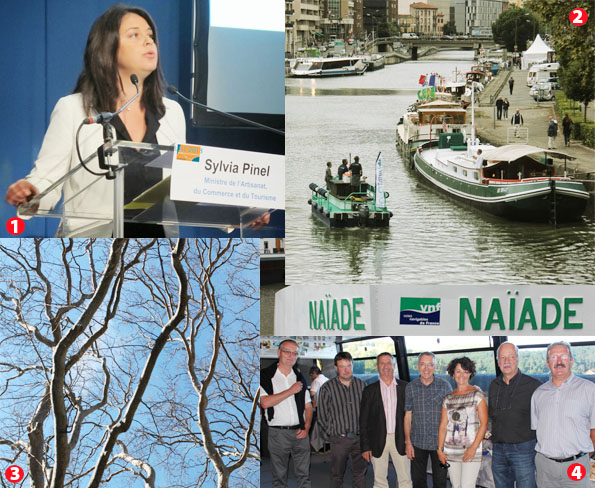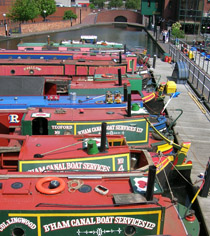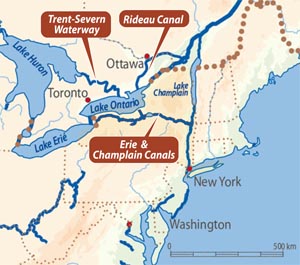Consultancy and expertise in France and abroad
Closing the event in Toulouse on 19 September 2013, the partners thanked Euromapping for its rôle in assembling and running the event: definition of the programme, scientific committee, communication, coordination of contributions and even simultaneous interpreting. Four days of exchanges, debates and site visits, appreciated by more than 250 delegates.

1
Sylvia Pinel, the French Minister of Crafts, Trade and Tourism, addresses 200 delegates at the opening of the World Canals Conference WCC13 in Toulouse on 16 September 2013.
2
The ‘Waterway Village’ at the Port Saint-Sauveur was a showcase for VNF and waterway businesses as well as for boating associations and tourist offices. VNF’s barge Naïade had an exhibition on the ecology of the canal du Midi.
3
The diseased plane-trees along the Canal du Midi and how to fund their replacement (estimated budget of €220 million) were a major topic of conversation at VNF’s stands, in the Waterway Village as well as in the conference centre. These specilmens were observed during the pre-conference tour near Colombiers.
4
Elected representatives of the ‘Syndicat Mixte’ of the Lot Valley in Aveyron, chaired by Jean-Claude Couchet, welcomed the post-conference tour participants for a cruise between Flagnac and Boisse-Penchot on Sunday, September 22. English, American, Canadian , Irish and Chinese delegates ‘adopted’ the Lot navigation in Aveyron and expressed their full support for completion of the rehabilitation works upstream of the lock at Laroque-Bouillac . Photo by Sylvain Blanchard aboard the electric boat Olt.

Transmanche has been providing consulting services and expert appraisals for the development of inland waterways and their uses since 1993. The qualifications of the founder, his team of collaborators and external partners mean that the company can undertake multidisciplinary studies covering either complete waterway networks (e.g. the Canal des Deux Mers, the rivers Lot and Baïse, the cross-border Franco-Belgian waterway network, the Rhône-Saône basin) or specific waterway sites such as boat harbours or urban sites enhanced by inland waterways.
The company being located in South-East France, most consulting assignments are conducted within the 8500km French waterway network, but the expert David Edwards-May and his team also work throughout Europe on Interreg or other EU-funded projects on inland waterways.
The company is currently seeking to expand its network of experts/partners in order to improve the supply of information in other parts of the world. The choice – unusual for a commercial company – to develop its activity in this single field is motivated by our conviction that sustainable development imposes the maximum use of inland navigation, the most environment-friendly transport mode, not only on rivers that are navigable in their natural state, but also on canalised rivers and the canals that link them, to form integrated networks.
How are canals funded? Study for UK waterways body
Transmanche studied funding sources for inland waterways in several countries of Europe and North America. The client is a consultative body created by the UK Government, the Inland Waterways Advisory Council (IWAC), attached to the Department of the Environment, Food and Rural Affairs (DEFRA). The objective was to identify the various sources of funding, covering both initial investments (as in major restoration projects) and running costs. The study – completed in June 2009 – shows that the percentage of costs covered by earned income is very low in most cases. Despite this, national and regional governments are maintaining funding levels sufficient to guarantee the ongoing operation, maintenance and renewal of this sensitive infrastructure. The research on the North American examples was conducted for Euromapping by The Canals Group.


